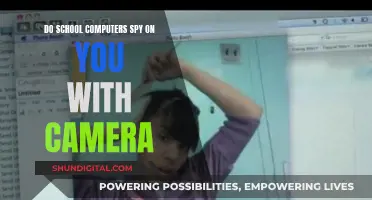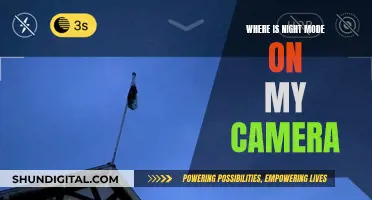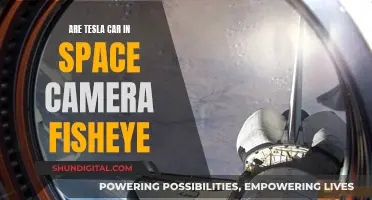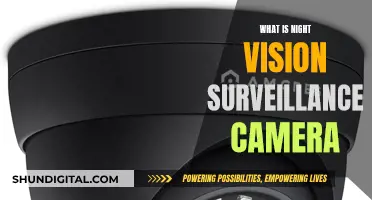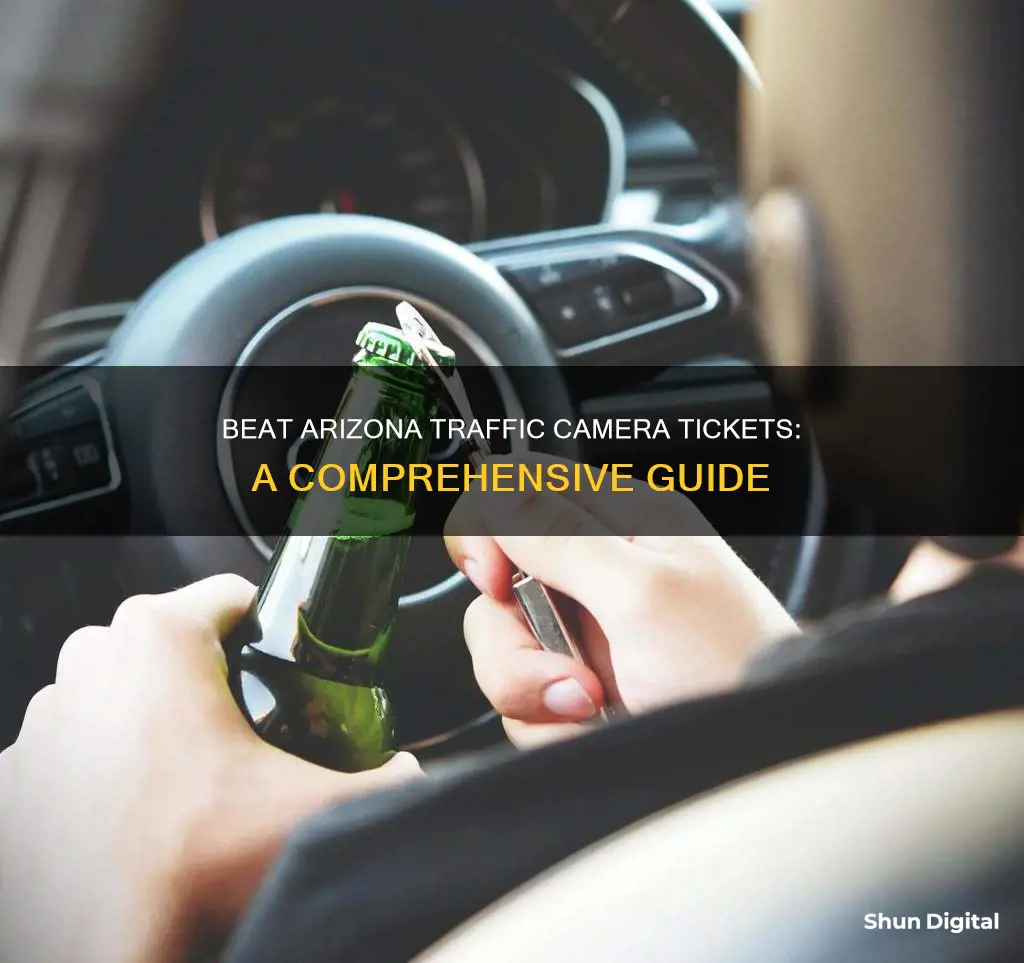
Getting a traffic ticket is never a pleasant experience, and it can be confusing to know what to do if you receive a photo radar ticket in the mail. Photo radar tickets are generated by a network of traffic cameras that take photos of vehicles under certain conditions, such as when their sensors detect motion during a red light or if they sense anything over the speed limit. While you may have heard that you can ignore photo radar tickets, this is not true. Photo radar tickets are enforceable in Arizona, and failure to respond to a served violation can result in a license suspension. However, there are ways to beat a photo radar ticket. Firstly, it's important to understand the difference between a Notice of Violation and a Traffic Ticket and Complaint. A Notice of Violation is not a ticket and you are not legally obligated to respond to it. On the other hand, a Traffic Ticket and Complaint is an actual ticket and requires action. Secondly, know your options after receiving a photo enforcement ticket. You can choose to wait and not respond to the ticket, take defensive driving school, mail something to the court saying you weren't the driver, request a service or civil traffic hearing, or hire an attorney to fight the ticket. Additionally, there are legal loopholes that can help you beat a photo radar ticket, such as ignoring a Notice of Violation or living in a gated community.
| Characteristics | Values |
|---|---|
| Time taken to get a photo radar ticket | The county has 60 days from the violation date to file the citation with the courts. After the filing date, they have an additional 90 days to serve a citation. |
| Response to a photo radar ticket | You are not legally required to respond to a photo radar ticket unless it is a certified court document. |
| Failure to respond to a served violation | Failure to respond to a served violation can result in a license suspension. |
| Ways to beat a photo radar ticket | Ignore the notice and hope the county does not serve a ticket; live in a gated community; register a vehicle to a corporation; use a license plate cover; fight the ticket in county court. |
| Waiver of service | Mailing anything back to the court about your ticket; requesting defensive driving school; making a physical appearance in court; a phone call. |
| Service of process | A process server physically comes to your house or place of residence and serves you or someone of suitable age, residing within your property. |
What You'll Learn

Ignore the ticket and hope for the best
Ignoring a traffic ticket in Arizona is generally not recommended. However, if you choose to ignore a photo radar ticket, there are a few things you should know. Firstly, understand that speed cameras are completely legal in Arizona, and photo radar tickets are enforceable. However, there are instances where you may not need to respond to a photo radar ticket.
If you receive a notice of violation in the mail, it is not a certified court document, and you are not legally obligated to identify anyone in the photo or respond to the notice. The photo radar company may impose fees if the fines are not paid by a certain date, but these are not enforceable unless filed by the county court. Therefore, you may choose to ignore the notice and hope that the county does not serve you with a ticket.
According to Arizona law, the county has 60 days from the violation date to file the citation with the courts, and then an additional 90 days to serve you with a citation. If they fail to serve the citation within this timeframe, you will not be required to pay the fine. However, keep in mind that some counties are employing alternative service methods, such as taping the documents to your door or leaving them at your address in plain view.
If you choose to ignore a photo radar ticket, be aware that there are potential consequences. Failure to respond to a served violation can result in a license suspension, which can lead to further legal troubles, including jail time and hefty fines. Additionally, if you communicate with the court in any way after receiving the ticket, you may waive your right to service and accept responsibility for the ticket.
While ignoring a photo radar ticket may be tempting, it is generally not advisable. If you feel that you have been wrongly issued a ticket, it is best to consult with an attorney to explore your options for disputing the citation.
Monthly Fees for Cellular Cameras: What's the Deal?
You may want to see also

Don't waive your rights
If you receive a photo enforcement ticket in the mail, it's important to know your rights and not waive them. There are two types of photo radar documents that you can receive: a "Notice of Violation" and a "Traffic Ticket and Complaint". A notice of violation is not a ticket and is usually addressed to the registered owner of the car. It states that a violation has occurred, but the police don't know who the driver is. You are under no obligation to respond to this notice and certainly have no duty to name the driver. The city only has 60 days from the date of violation to issue a ticket, so if you don't tell them who the driver is, odds are no ticket will be issued.
On the other hand, a "Traffic Ticket and Complaint" is an actual ticket. It will be multiple pages and will mean there is now a court case involving the named driver. The ticket will include coupons outlining various options that you can mail to the court. However, it is recommended that you do not mail anything to the court until you have spoken with an attorney, as you may unwittingly waive some of your rights.
If you receive a ticket, there are a few things to keep in mind to avoid waiving your rights:
- Do not mail anything back to the court about your ticket. This includes any written communication or the coupons that come with the ticket. By doing so, you will waive the service requirement, and the court may take action against you.
- Do not request defensive driving school online, in writing, or otherwise. This is considered a waiver of service, and you will no longer have the option to fight the ticket.
- Do not make a physical appearance at court or contact the court by phone. Some courts have considered a phone call a waiver of service.
- Do not request a hearing before you have been served. If you request a hearing, the court will tell you that you have waived the option to take defensive driving school.
If you are unsure about what to do, it is recommended that you speak with an attorney who can advise you on your rights and options. It is important to know your rights and not waive them when dealing with a photo enforcement ticket.
Olympus OM-D: The Scene Mode King
You may want to see also

Know the difference between a Notice of Violation and a Traffic Ticket and Complaint
When it comes to traffic violations in Arizona, it is important to understand the difference between a Notice of Violation and a Traffic Ticket and Complaint. Here is a detailed overview:
Notice of Violation:
- A Notice of Violation is typically sent to the registered owner of the vehicle when a violation occurs, but the police cannot identify the driver.
- In this case, they don't know who to issue a ticket to, so they request that the recipient of the notice identifies the driver.
- It is important to note that you are not legally obligated to respond to this notice or name the driver.
- The city has 60 days from the date of the violation to issue a ticket. If you don't disclose the driver's identity, chances are a ticket will not be issued.
- A Notice of Violation is usually a single-page document.
Traffic Ticket and Complaint:
- This is an actual ticket and will be clearly labelled as a "Traffic Ticket and Complaint" at the top.
- It will be multiple pages long and will include several coupons outlining your options, which you can mail back to the court.
- When you receive a Traffic Ticket and Complaint, it means there is a court case involving the named driver.
- It is recommended that you do not mail anything back to the court until you have spoken with an attorney, as you may unintentionally waive some of your rights.
- If you receive a Traffic Ticket and Complaint, the court has 90 days from the date the complaint was issued to serve it to you. If they fail to do so within this timeframe and you have not waived your right to service, the ticket will be dismissed.
In summary, the key difference between the two is that a Notice of Violation is a request for information and does not require a response, whereas a Traffic Ticket and Complaint is an official ticket and the start of a court case. If you receive a Traffic Ticket and Complaint, it is important to take appropriate action, such as consulting an attorney, to protect your rights and understand your options.
Dash Cam Power: Staying Charged and Ready
You may want to see also

Understand the service of process
Understanding the service of process is crucial if you want to beat an Arizona traffic camera ticket. Here's a detailed guide:
Service of process refers to the procedure where the State of Arizona provides a driver with formal notice of a photo radar ticket. This is done through a process server, who is licensed with the state and delivers a copy of the ticket to the defendant or someone of "reasonable age" (14 years or older) in the household. This procedure is necessary for the court to acquire personal jurisdiction over the defendant and take action.
Service of process is essential because it gives the court the authority to take action against a defendant. If you are not served within 90 days of the ticket being filed in court, and you haven't waived your right to be served, your case will likely be dismissed due to a lack of personal jurisdiction.
There are two main ways a ticket can be served:
- Personal Service: A licensed process server or, rarely, a police officer delivers the ticket to the defendant, usually at their residence.
- Substitute Service: A licensed process server delivers the ticket to someone of suitable age and discretion who lives with the defendant. The exact definition of "suitable age" is unclear, but it generally refers to individuals between the ages of 14 and 16.
Waiver of Service
It's important to note that the State may try to get you to waive your right to be served by asking you to mail something back to the court or sign a waiver. If you do so, you also waive your right to argue about improper service later on. Examples of actions that may be considered a waiver of service include:
- Mailing anything back to the court regarding your ticket
- Requesting defensive driving school, either online or in writing
- Making a physical appearance in court
- In some cases, even a phone call to the court
Alternative Service
If standard service methods are unsuccessful, the process server may request permission from the court to use alternative service methods. This typically involves:
- Mailing another copy of the ticket by first-class and certified mail
- Posting a copy of the ticket to the defendant's front door or garage door
Once these steps are completed, the defendant is considered served, regardless of whether they actually received the notice.
The Bottom Line
If you receive a second copy of the ticket by any means, you've likely been served. At this point, it's important to take action, such as contacting an attorney, rather than ignoring the ticket.
Mastering the Art of Hiding Pins in Camera Raw Adjustment Brush
You may want to see also

Fight the ticket in court
If you believe you were cited unjustly, you have the option to fight a photo radar ticket in court. Here are some steps to follow if you choose to do so:
Understand the Process:
Know that you are not legally obligated to respond to a "Notice of Violation." This is different from a "Traffic Ticket and Complaint," which indicates a court case involving the named driver. If you receive a "Traffic Ticket and Complaint," do not mail anything to the court before speaking with an attorney, as you may unwittingly waive some of your rights.
Know Your Rights:
Understand that you have the right to be served with the ticket within 90 days from the date of filing with the court. This means a process server must physically come to your residence and serve you or someone of suitable age (usually 14 or older). Simply mailing the citation is not enough, and you do not need to respond unless served.
Consider Your Options:
If you are eligible for Defensive Driving School, this may be a cheaper option than hiring a lawyer. However, if you are facing a license suspension, have multiple citations, or have a commercial driver's license, it may be advisable to seek legal representation.
Gather Evidence:
If you choose to fight the ticket, you will need to present a solid argument and evidence to support your case. For example, you may be able to prove that you were not the driver or provide evidence that you were not in Arizona at the time of the violation.
Prepare for Court:
A civil traffic hearing typically involves the photo radar police officer or traffic aide, the defendant, their attorney, and a judge. The government will present their evidence first, and then the defendant will have the opportunity to question them and present their own evidence and testimony.
Be Aware of the Costs:
Fighting a ticket can be expensive, and if you lose, you will be responsible for the ticket fine and associated court fees. Additionally, consider the potential impact on your insurance rates and the possibility of a license suspension. Weigh these costs against the potential benefits of beating the ticket.
Unlocking Moto Z Play's Camera Modes: A Step-by-Step Guide
You may want to see also
Frequently asked questions
You are not legally obligated to respond to a photo radar ticket unless it is a certified court document. If it is not, you do not need to identify anyone in the photo or respond to the notice. However, if you believe you were cited unjustly, you do have the option to fight it.
If you ignore a served violation, it can result in a license suspension, which can cause further trouble down the line, including 6 months in jail and a fine of $2,500.
If you feel you were wrongly ticketed and have the evidence to prove it, you can dispute the citation. However, the cost of fighting a ticket can sometimes be more than the ticket itself. It is recommended that you seek legal representation if you are facing a license suspension, have multiple violations, or have a commercial driver's license.


